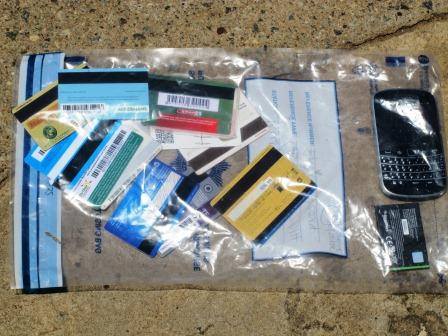Protect your personal bank account from fraudulent funds transfer activity
E-commerce has undergone a dramatic metamorphosis in recent years to the point where many of us cannot fathom a world without it. It also means that in today’s digital age, the risk of becoming a victim of cybercrime is fast becoming a reality for many. If you have a bank account, and you transact online, you are at risk when it comes to your personal online banking.
The risks and scams abound – from incorrectly entering a bank account number, to being conned into making a payment into a bogus account by fraudsters, or even booking your dream holiday online only to find that the accommodation you have booked does not even exist.
“While e-commerce and cyber insurance protection for businesses is more commonly known and taken up, there is a significant risk for individuals that needed closing to protect consumers from the personal banking risks they face in our online and tech-driven lifestyles. Phishing scams, virus attacks, fraudulent online and in-app purchases and EFTs, social engineering and identity theft affect millions of individuals every year,” explains Ann Cloete of Aon South Africa.
According to the South African Banking Risk Information Centre (Sabric), its statistics released in 2020 on behalf of the banking industry showed that digital banking fraud rose by a third as criminals turned to digital channels. As customers turned to online shopping and settling payments in apps during the lockdowns, criminals stepped up their phishing efforts in a bid to steal personal data to defraud them on digital and online platforms. Debit card fraud also increased by 22% according to SABRIC. And according to an Accenture 2020 report, there was a 100% increase in mobile banking application fraud and a 79.5% increase in card-not-present (CNP) fraud on South African-issued credit cards, making this scam the leading contributor to gross fraud losses in the country.
“Funds Protect is an insurance solution specifically designed to cover you for a loss of funds from an account in your name, as a result of a funds transfer – whether authorised or unauthorised – due to fraudulent conduct of a third party which is irrecoverable from your financial institution or third party,” Ann explains.
The cover provided by a personal Funds Protect policy will trigger in the event of:
– Email interception fraud
– Transactions due to your stolen identity
– EFT/deposit scams
– Hacking /phishing/vishing attacks
– Demands for ransomware attacks, denial of service attacks, etc
– Fraudulent invoices
– Sim Swap fraud
– EFT Fraud
– Online banking fraud
– Online shopping fraud
– Holiday scams
– Fake classified adverts
– Bogus property rentals
“It is vital to contact your bank immediately if you suspect that you’ve been a victim of an online banking scam or that someone has gained unauthorised access to your online banking profile, or if you have simply made a mistake and paid an amount into the wrong bank account. Speed is of the essence in these scenarios to allow your bank to help you recover the funds. If, however, there is nothing that can be done to recover such funds, Funds Protect is your solution,” says Ann.
It is critical to ensure that you purchase enough Funds Protect cover in order to mitigate the full financial loss of any incident that involves your online banking profile. For example, if you have purchased R25 000 Funds Protect cover but all your bank accounts are accessed, your losses could amount to much more than R25 000 and potentially be financially crippling. Funds Protect cover is relatively inexpensive for what it provides and will be a lifeline in the event of a loss of funds.
Cover options are available in increments from R25 000 for R20/pm, R50 000 for R33/pm,E, and up to R1 million for R385/pm. Higher cover limits are available subject to underwriting and conditions of cover.
Funds Protect, a niche product provided by Phishield UMA (Pty) Ltd and underwritten by Bryte Insurance Company Limited, is an affordable and savvy way to protect you and your bank account from potentially devastating fraudulent funds transfers.




